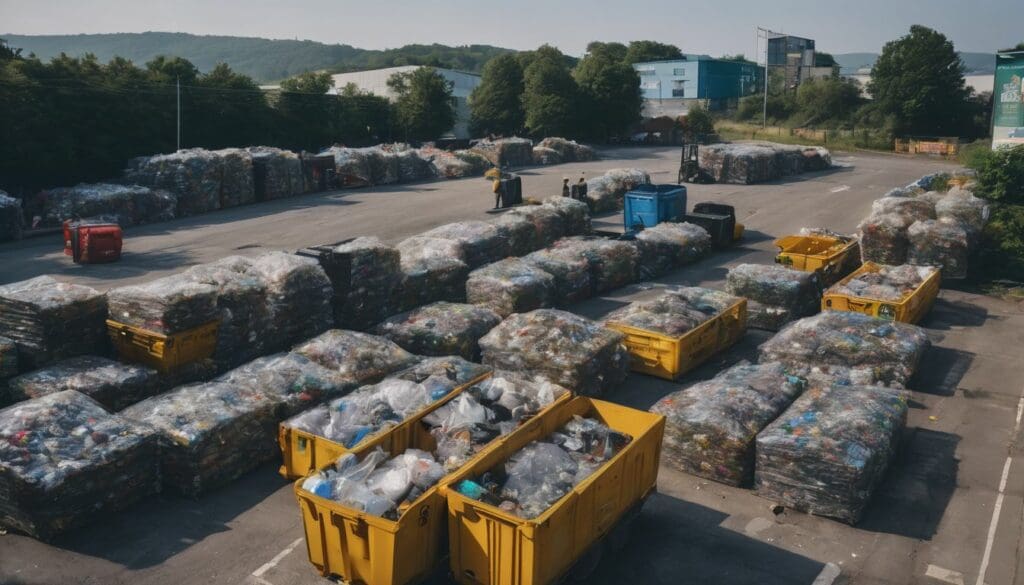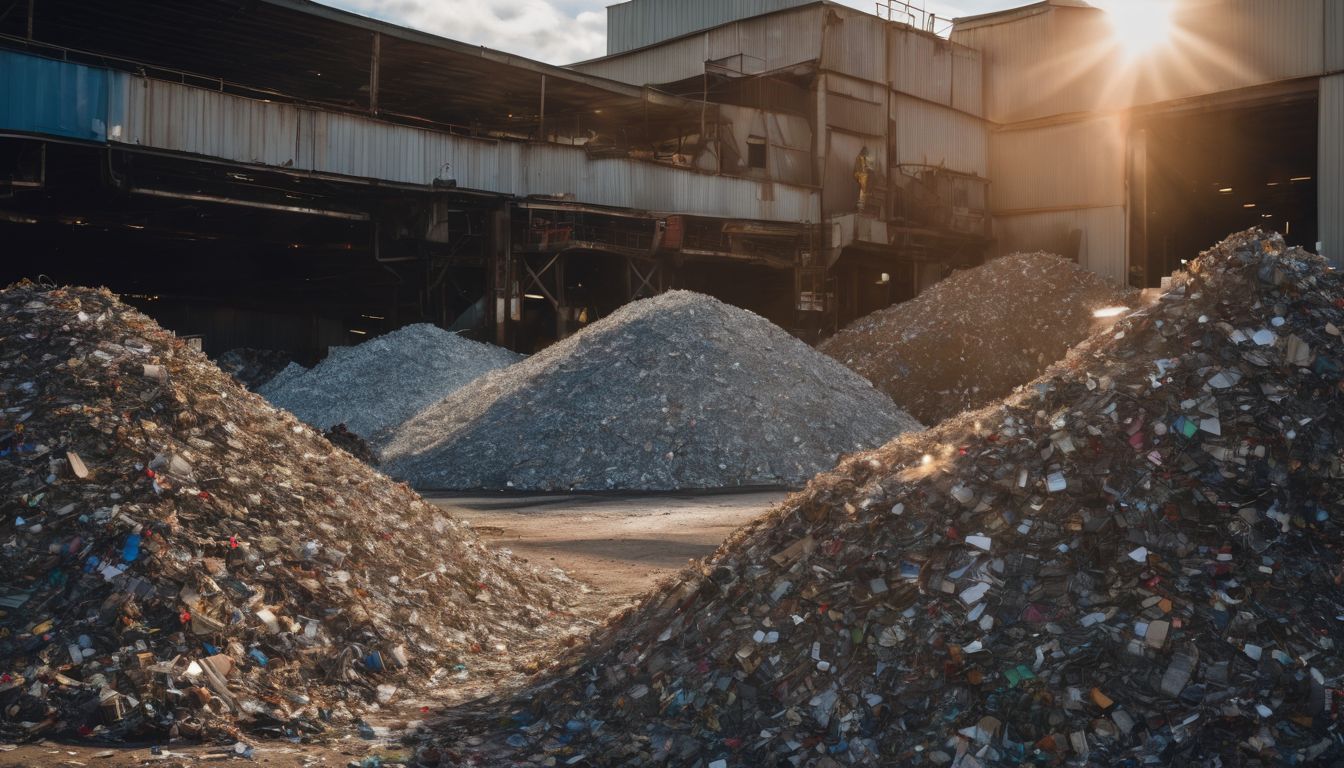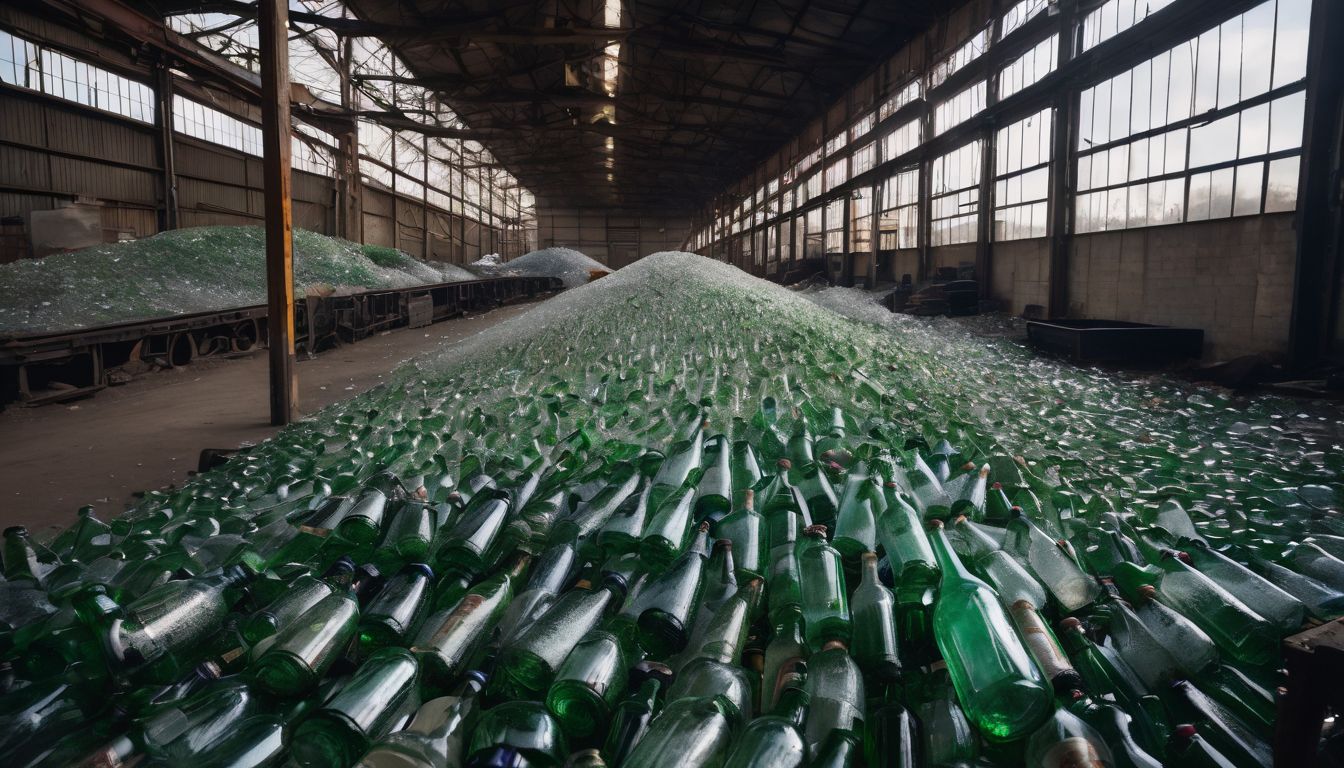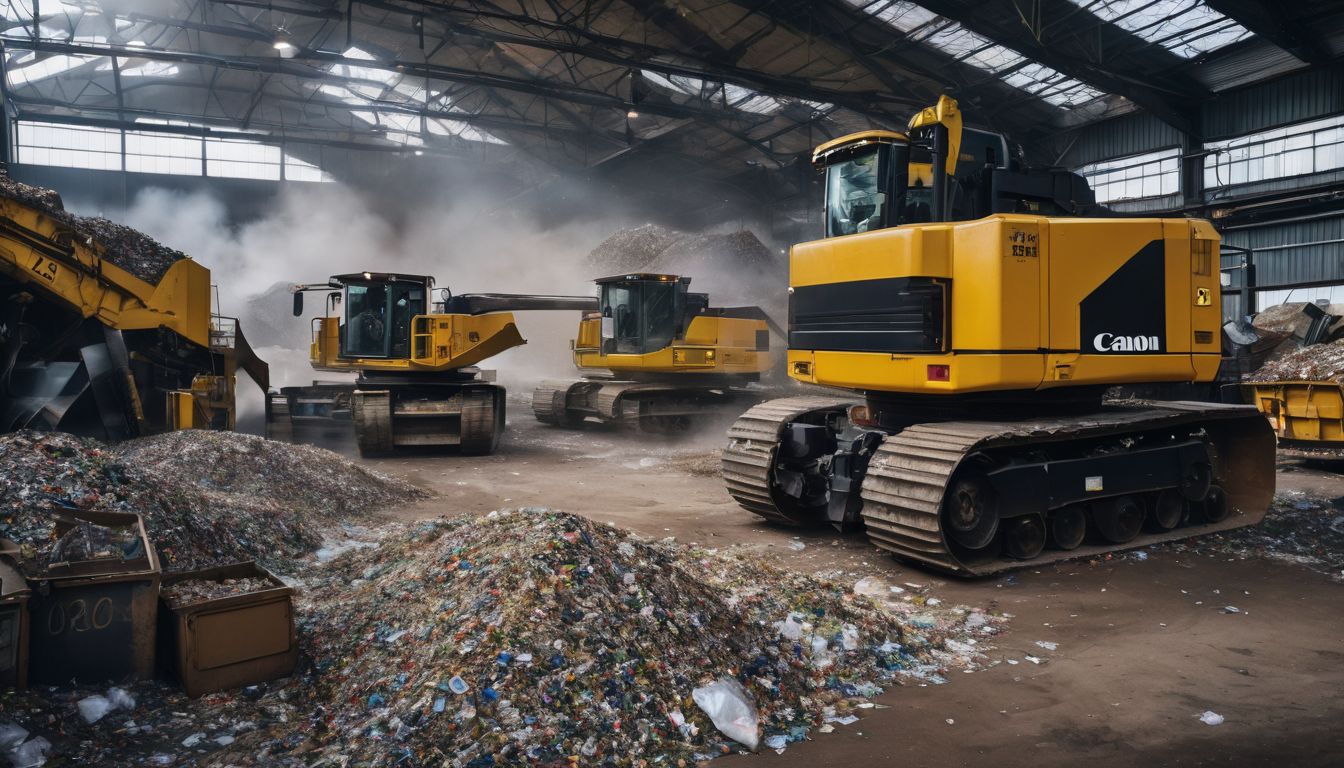Frustrated by the piles of recyclables without a proper home in your neighbourhood? Every year, tonnes of potential resources are lost to landfills due to inadequate recycling. Our guide will show you the ropes so that you can spearhead a successful local recycling programme from scratch.
Let’s turn waste into wonder!
Key Takeaways
- Research local recycling rules and contact waste management to get the right licences.
- Choose what you want to recycle and put bins where people can easily use them.
- Teach everyone about recycling benefits and use social media to tell more people.
- Check how well your program’s doing and make it better with community help.
- Get businesses involved for more support and long-term success in your recycling efforts.
Research and Familiarise Yourself with Guidelines and Regulations
Before starting a local recycling program, it is important to research and familiarise yourself with the guidelines and regulations. Contact local recycling companies, check with the city’s waste management department, and obtain necessary licenses and permits.
Contact local recycling companies
Establishing a recycling program starts with connecting to the local recycling infrastructure. Reach out to nearby recycling companies to lay the foundation for your initiative.
- Research the recycling firms in your area to find which ones align with your program objectives.
- Get in touch directly via phone or email to discuss partnership opportunities and services available.
- Visit their facilities if possible, to gain a better understanding of their processes and capabilities.
- Inquire about the types of materials they accept and any specific sorting requirements they may have.
- Negotiate terms for collection frequency and any associated costs for their services.
- Discuss how these companies can support educational efforts within your community.
Check with city’s waste management department
Begin by familiarising yourself with the guidelines and regulations regarding recycling in your local area. Get in touch with the waste management department of your city to understand the specific requirements and procedures. Obtain any necessary licences and permits to ensure compliance with regulations.
- Contact the waste management department to enquire about local recycling guidelines and regulations.
- Gain an understanding of any specific rules or restrictions related to starting a recycling programme in your community.
- Obtain the required licences and permits as outlined by the waste management department to ensure legal compliance.
Obtain necessary licences and permits
Obtaining necessary licenses and permits is a crucial step in starting a local recycling program. Ensure compliance with regulations and guidelines by:
- Contacting local recycling companies to understand required permits.
- Checking with the city’s waste management department for specific licensing requirements.
- Acquiring all essential permits before initiating the recycling program.
Assess What Can Be Recycled in Your Community
To assess what can be recycled in your community, start by reviewing the guidelines and regulations for recycling. Contact local waste management departments and recycling companies to understand the specific recyclables accepted in your area.
Identify the materials that are commonly used and discarded, such as paper, plastic, glass, and metal. Engage with local businesses and residents to gather insights into their disposal habits and identify opportunities for improvement.
After identifying recyclable materials in your community, categorise them based on potential environmental impact and demand. Consider establishing partnerships with nearby recycling facilities or organisations to streamline the collection process for these materials.
Through collaboration with stakeholders in your community, devise a comprehensive plan for sorting, storing, and transporting recyclables to designated facilities.
By assessing what can be recycled in your community comprehensively, you can lay the groundwork for effective waste reduction practices while promoting sustainability efforts within your local area.
Next: “4. Implement a Collection Plan”.
Implement a Collection Plan
Determine specific recyclables to target and place recycling bins in convenient locations to encourage community participation. Want to find out more about how to start a local recycling programme? Keep reading for all the details!
Determine specific recyclables to target
Identify the specific recyclables relevant to your community. Assess the waste stream and conduct research on local recycling markets. Recognise materials that have high demand for recycling, such as paper, cardboard, plastic bottles, glass containers, and aluminium cans.
Consider engaging with local businesses and residents to gather input on the most commonly used items suitable for recycling.
Conduct a survey or organise a focus group to identify materials of interest to the community. Utilise this information to create an effective collection plan aligned with the recycling needs of your locality.
Place recycling bins in convenient locations
After identifying the specific recyclables to target, the next step is to place recycling bins in convenient locations throughout your community. Strategically positioning these bins will encourage an increase in recycling participation and make it easier for people to dispose of their recyclable waste responsibly.
By placing the recycling bins in high-traffic areas such as parks, sports facilities, schools, and communal spaces, you can ensure that they are easily accessible and visible to everyone.
This simple yet effective strategy helps create a culture of environmental responsibility and encourages individuals to take part in eco-friendly initiatives.
Encouragingly, local businesses can also play a vital role by placing recycling bins at their premises for employees and customers. Collaborating with local shops or stores adds more visibility to your recycling program while promoting green living within the community.
Educate and Spread Awareness
Create an improvement plan, educate the community on the benefits of recycling, and utilise social media to spread the word about your local recycling program. To learn more about how to make a positive environmental impact through recycling, continue reading our blog.
Create an improvement plan
Devise a comprehensive plan for enhancing the local recycling programme. Identify specific areas that require refinement in terms of collection, sorting, or community involvement. Engage with stakeholders to gather insights and ideas for improvement, ensuring continuous progress towards sustainable environmental practices.
Outline strategies to increase recycling rates by introducing new educational campaigns and incentives. Implement innovative technologies or methods to streamline the recycling process and maximise efficiency within the community’s resource management system.
Collaborate with local businesses to identify opportunities for sustainable waste reduction and circular economy initiatives, fostering a greener and more eco-conscious environment.
Educate the community on the benefits of recycling
Once you have created an improvement plan, it’s essential to educate the community on the benefits of recycling. Demonstrating how recycling reduces waste in landfills and conserves natural resources is crucial.
Use social media platforms and local events to spread awareness about the positive impact of recycling.
Engaging local schools and businesses in educational initiatives will help foster a culture of environmental stewardship. Emphasise the importance of resource preservation and highlight how small individual efforts can lead to significant environmental sustainability.
Utilise social media and other platforms to spread the word
Once the community is educated on the benefits of recycling, it’s crucial to utilise social media and other platforms to spread awareness further. Social media serves as an effective tool for reaching a diverse audience and engaging with environmentally conscious individuals who are keen on supporting conservation efforts.
By posting regular updates about local recycling initiatives, sharing informative content, and encouraging participation, we can amplify the message of environmental conservation and encourage active involvement in eco-friendly practices within our community.
Additionally, collaborating with local influencers, businesses, and organisations can also help expand the reach of our recycling programme by tapping into their networks and leveraging their support to promote sustainability.
Monitor and Evaluate the Recycling Programme
Track the progress of your recycling program and make necessary improvements to increase its effectiveness. Involve the community and local businesses for continuous support and participation.
Track progress and make necessary improvements
To ensure the success of your local recycling programme, consistently monitor its progress. Analyse the amount and types of recyclables collected regularly to identify areas for improvement.
Engage with the community to gather feedback and adjust your collection plan based on their input. Involve local businesses in supporting your initiative, aiming for continuous participation and helping you adapt as needed.
By tracking progress and making necessary improvements, you will contribute to a more sustainable environment.
Involve community and local businesses for continuous support and participation.
To ensure the success and longevity of your recycling program, it’s crucial to involve the community and local businesses for continuous support and participation. Engaging with the community through outreach programmes, educational events, and social media campaigns can help raise awareness about the benefits of recycling.
Collaborating with local businesses to sponsor or host recycling drives can also encourage active participation within the community. By fostering these partnerships, you can create a sustainable network of support that will aid in the ongoing success of your eco-friendly initiatives.
Encouraging involvement from all sectors of society ensures a more holistic approach to recycling efforts. Community engagement fosters a sense of collective responsibility for environmental conservation while also promoting a culture that prioritises eco-friendly practices.
Conclusion
In conclusion, starting a local recycling program involves thorough research and adhering to regulations. Assess what can be recycled in your community, create a collection plan, and spread awareness through education.
Monitoring the progress of the recycling programme is crucial for continuous improvement and community involvement.
FAQs
1. What are the first steps to starting a local recycling program?
First, research local recycling policies and identify what materials can be recycled. Then gather support from your community for this eco-friendly initiative.
2. How do I engage my community in eco-friendly practices through recycling?
Encourage participation by educating your neighbours about the benefits of recycling, and organise events or meetings to discuss eco-friendly practices.
3. Can businesses join the local recycling program?
Absolutely! Invite businesses to participate in your eco-friendly initiatives by setting up collection points and informing them about proper recycling methods.
4. What should I do if there’s no existing policy on recycling in my area?
You can take action by proposing new recycling policies to your local council, explaining how these will benefit the environment and community as part of an eco-friendly practice.





